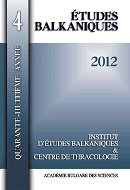

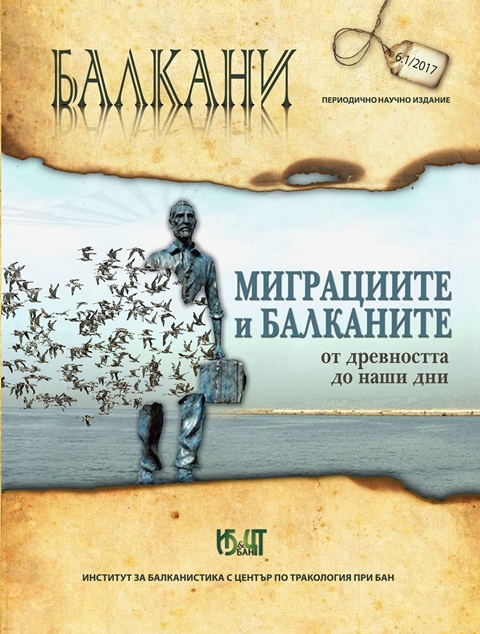
Keywords: mixed marriages; migration; marriage regulations; “own” and “alien”; inter-cultural exchange; inter-cultural dialog;
Mixed marriages are one of the effects of migration. Every community has its own marriage regulations that define which marriages (meaning also which forms of inter-cultural exchange, inter-cultural dialog) are allowed, possible and inadmissible. In the foundations of these rules, strictly related to the definitions of the “own” and “alien”, and with the further differentiation of the “own”, lay the ideas about what is useful for the community. These rules are embedded in different tests; for the time when national law system was still not created, oral traditions and literature were among their main carriers. The paper is focused at the plots in literature dealing with marriages and love affairs of Bulgarian women with men from other ethnical origins, other religion and especially with the faith of some women that had to live in a community, different from their own.
More...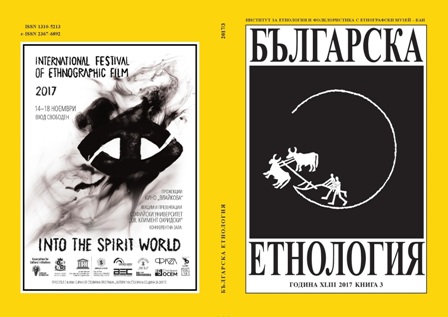
Keywords: local identity;public baths;Sofia;modernization;social networks
This article is part of ethnological research on the role and function of the public baths in the urban space. It was held in 2017 in the Gorna Banya district in Sofia. In this publication the public baths are seen as one of the markers that construct local identity. In the beginning of the 20th century, the old Ottoman baths were destroyed and new ones were built, which have been preserved to present day in the centre of Gorna banya. The baths are part of the everyday life of the local people. They use their resources for drinking, cooking, washing, but also for trade and medicinal purposes. Furthermore, they continue to observe some traditional family and calendar customs around the public baths.Although the doors of the baths are closed, the square in front of them continues to play a central role in public life. This is evidenced, on the one hand, by the annual celebrations, and on the other hand, by the ordinary people who organize gatherings in front of the public baths via Facebook. The public baths continue to be a central place around which life in the neighbouhood is organized. The local authorities are looking for different ways to fund the restoration of the old building.
More...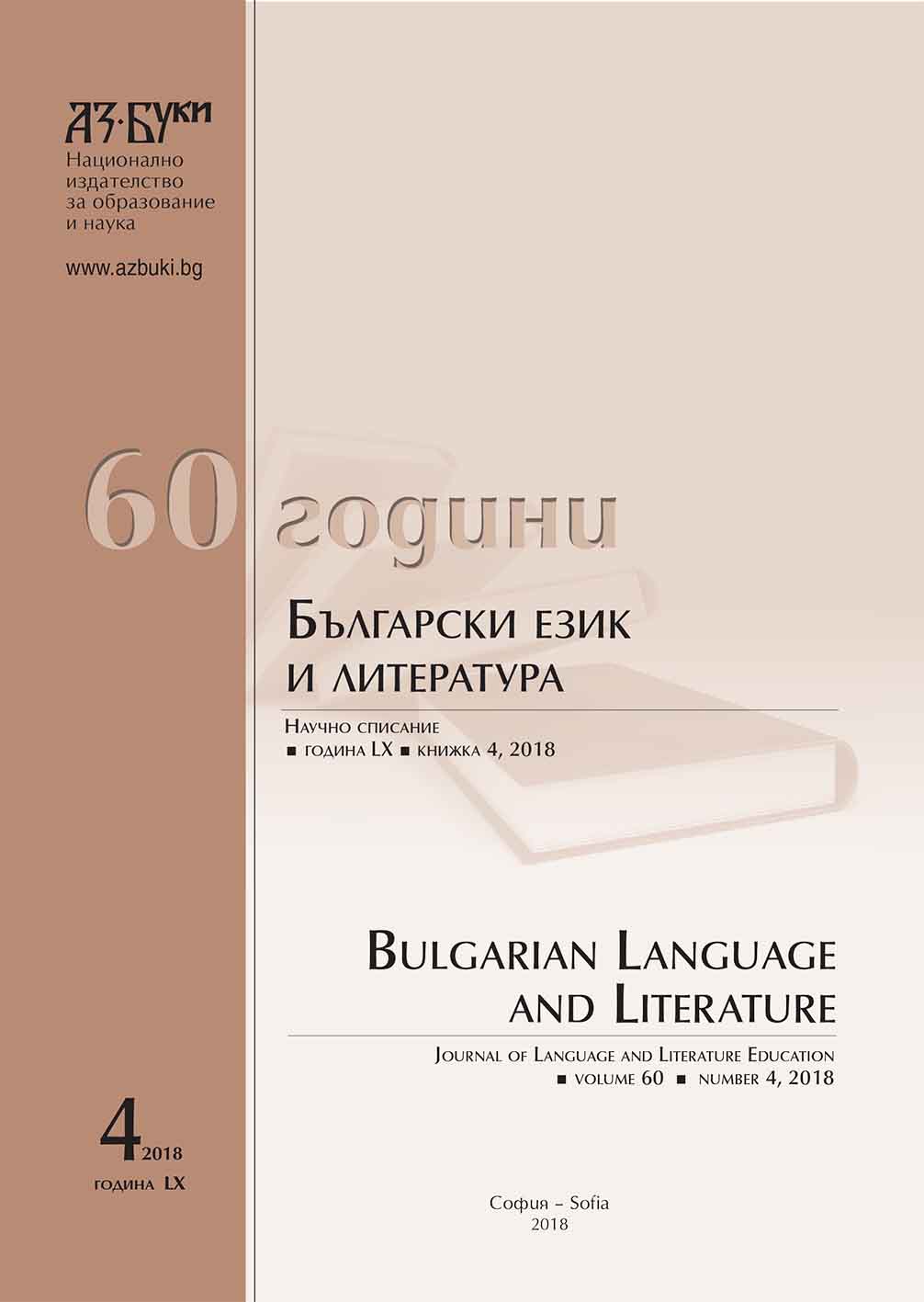
Keywords: typography; rapture; resistance; cultural experience; National Revival
This article suggests an attempt to analyze some texts from the Bulgarian National Revival Periodic Press that interpret a „marvelous discovery“ - the typography. Its role and significance for the radical changes in cultural and literary communication, but also the resistances against it as something new, unknown and affecting someone‘s interests, are also examined. Through some texts by K. Fotinov, P. R. Slaveikov, N. Kazanakli is defended the concept of the typography as discovering new worlds, removing certain boundaries - spatial, temporal - and facilitating the touch to the foreign experience and its more comprehensive absorption, which are of particular importance in the conditions of the Bulgarian 19th century.
More...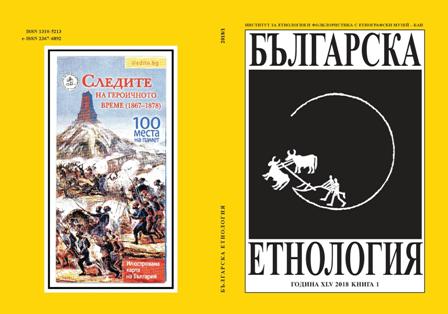
Keywords: heroic anthropology;sacred site;healing water source;Botev’s troop;“Radetzki“ steam boat;national history;
The article traces the regained popularity of a healing water source, promoted by the feigned healer and wonder worker Angelush. The activities of Angelush are connected with the appearance of the Great Comet, which was observed in Europe in 1861. Many newspapers from this period reflected the miracles and the impressive crowds of people that visited the healing water source in Northeast Bulgaria, near the Danube River. The present-day“intervention“ in media context seems to result from the need of shedding light on the visible traces of the “heroic time,“ which were pertinent due to the proximity with the anniversary of the April 1876 uprising and with the exploit of Hristo Botev’s troop and the use of “Radetzki“ steam boat in that year. The text analyzes a concrete case of inventing a tradition, which has appeared necessary for present-day political and social purposes. The significance of Angelushevo water source as a sacred place is construed entirely in media context, creating the myth that “Radetzki“ steam boat was built with the money earned from transporting visitors to the healing water source. In this case, the theme of the “heroic time,“ and the immediate relation with the national narrative were used to testify the significance of a religious site,the belief in which should have been sufficient justification of its existence. Thus, in 21st century we are witnessing how an increasing number of churches and monasteries in Bulgaria are construing their past through the links they establish with nationally significant topics,characters and images. They do so by emphasizing not that much the spiritual and religious aspects – as connected with faith or with sacred scriptures, but rather – with the presence of traces of heroic time, which inscribe the cult sites in the toponymic space of the nation.
More...
Keywords: literary character;April 1876 uprising;heroes;national history;local memory;heroic anthropology;
The article analyzes the figure of Ivan Borimechkata (The Bear-Fighter) – one of the most famous heroes of April 1876 uprising – from the viewpoint of its hyposthases: as a literary character that gained popularity with Ivan Vazov’s novel “Pod Igoto“ [“Under the Yoke“]; as a historical personality with a concrete biography on whose basis Vazov created his literary character; as a mythical figure that found various representations in the national and local memory, in art, public discussions, etc.Analyzing comparatively diverse folklore and historical sources about Borimechkata, the article traces the processes of taking the concrete personality out of historical anonymity and turning it into a hero and a kind of myth. In the course of these processes, the historical indicators about the martyrdom of Ivan Borimechkata appear silenced by the voice of the heroic memories about him – ones created and affirmed through the character’s interpretation in literature, monumental representations,visual arts, and cinema. The article shows how the novel “Under the Yoke“ testifies not only of Vazov’s return to the “idealized epoch“ of the April 1876 uprising, with its ideas and heroes, but was also a powerful instrument in coining heroic characters and narratives connected with that time.
More...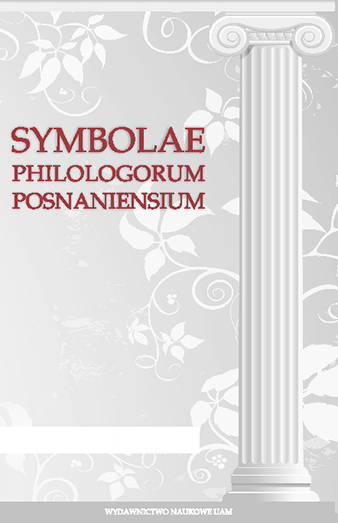
Keywords: Aesop’s fairy tales; translations into Bulgarian; national revival.
The article considers the Bulgarian translations of Aesop’s fairy tales done in the nineteenth century. Then theyoccupied an important place in the textbooks for the newly emerging secular schools. As a popular reading,they also played an important role in the discussion on normalization of the Bulgarian language.
More...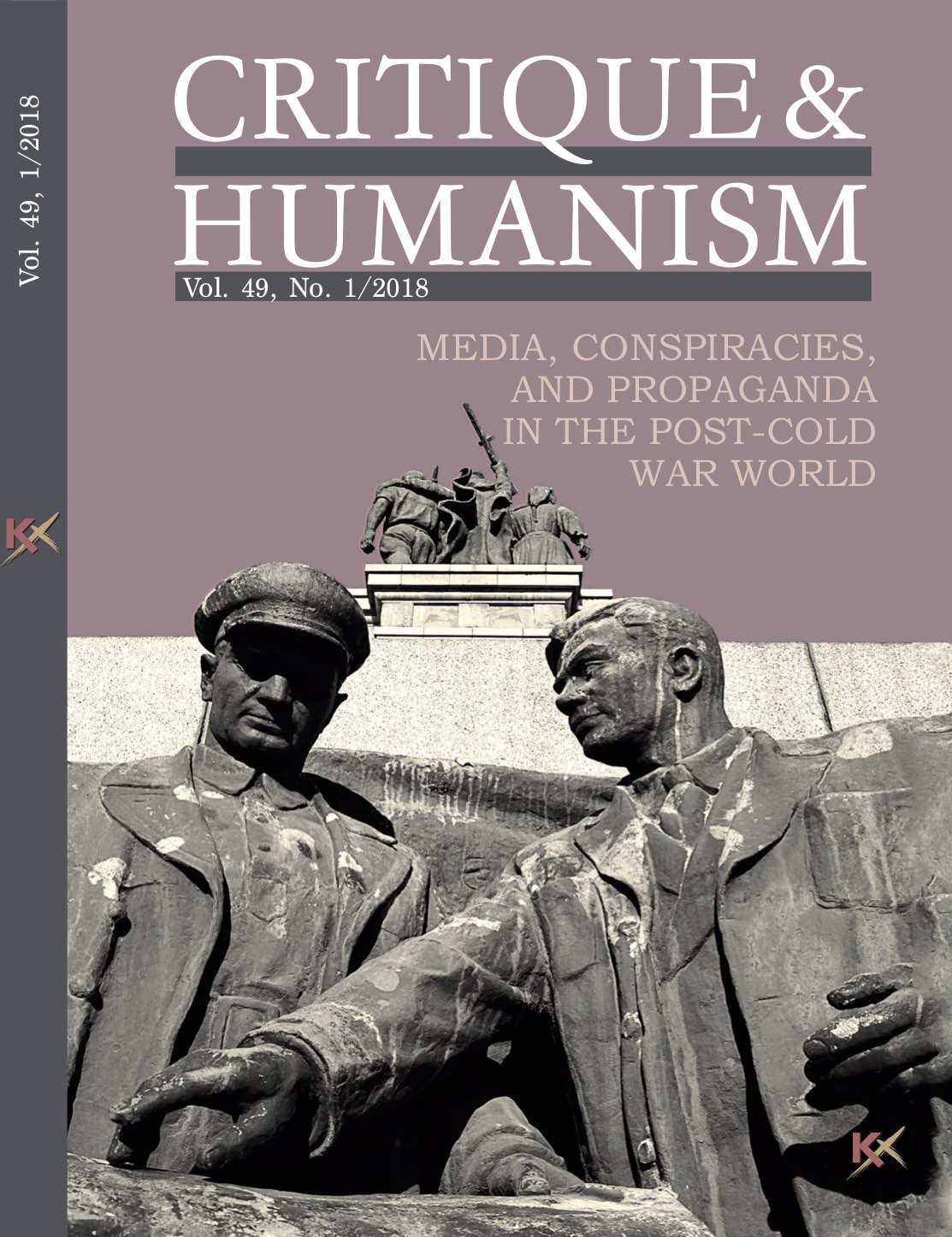
Keywords: Russians – Bulgarians; social attitudes; complexes; imperialism; vassality
This is the story of the modification of a hypothesis about the attitudes of Bulgarians towards Russians as a result of an empirical survey. The main tenet is that both groups regard one another through two different complexes. The adequacy of the notion of complex (used in the sense of Charcot rather than of Freud) in this context is explained. The Bulgarian complex is vassality: Bulgaria is/should be a vassal to suzerain Russia, therefore expecting protection for services rendered. The Russian complex is imperialism: Bulgaria is/should be a colony of Russia, therefore Russia is under no obligation to Bulgaria regard- less of circumstances. As in reality Bulgaria is a member of the EU and NATO, these complexes create misunderstandings that complicate further a relation- ship that objectively is already complex enough.
More...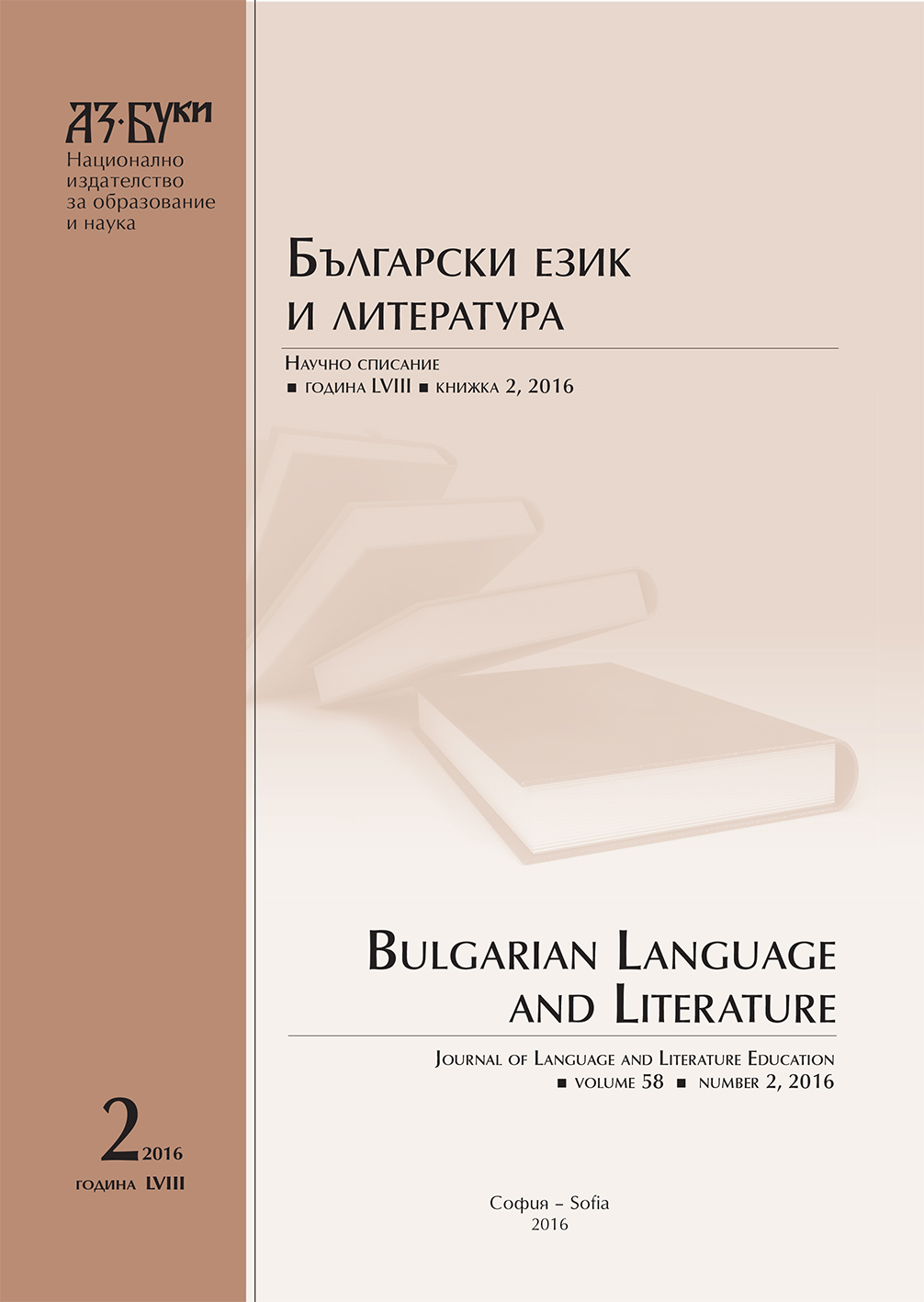
Keywords: literary route; a detective plot; spy novel; agent
The first lecture of the route tells about one curious story from 1966, which relates to the arrival of the Bulgarian prototype of the popular character of Ian Fleming - James Bond (007). Bulgarian writer and author of spy books from the early era of social realism Andrei Guliashki published a novel titled “Against 007”, to which British publishers of Fleming show interest for film adaptation of the novel. The procedure had started, but... for a number of reasons the idea remained unfulfilled and Bulgarian Bond couldn’t had a chance to experience the epochal clash with his English colleague. The second lecture focuses on the establishment of the genre of criminal and spy books by the writer Bogomil Raynov, who in series of novels created perhaps the most popular Bulgarian character of a spy from the Eastern Bloc - agent Emil Boev. The cult character enjoys a great popularity, almost all novels of B. Raynov from the series were filmed, and the most successful realization turned to be the novel “There is nothing better than the bad weather“.
More...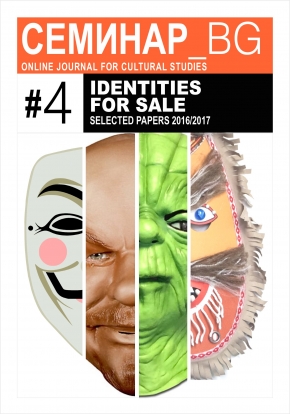
Keywords: participatory culture; historical re-enactments; Neopaganism; Thracians
The article addresses contemporary enthusiasts’ activities dealing with the ancient Thracian heritage in Bulgaria. Alternative re-writings of the past, cult movements and historical re-enactments have been analysed in view of the creation of a popular narrative, which is being endlessly shared, experienced, re-appropriated and re-formulated online. Based on the concept of community of practice, as it has been recently introduced in Heritage Studies by Nicolas Adell, Regina F. Bendix, Chiara Bortolotto and Markus Tauschek, the focus of the paper is on possible entanglements between various academic and dilettante, professional and amateur, religious and political actors, all of which contribute to the establishment of an “edited” past.
More...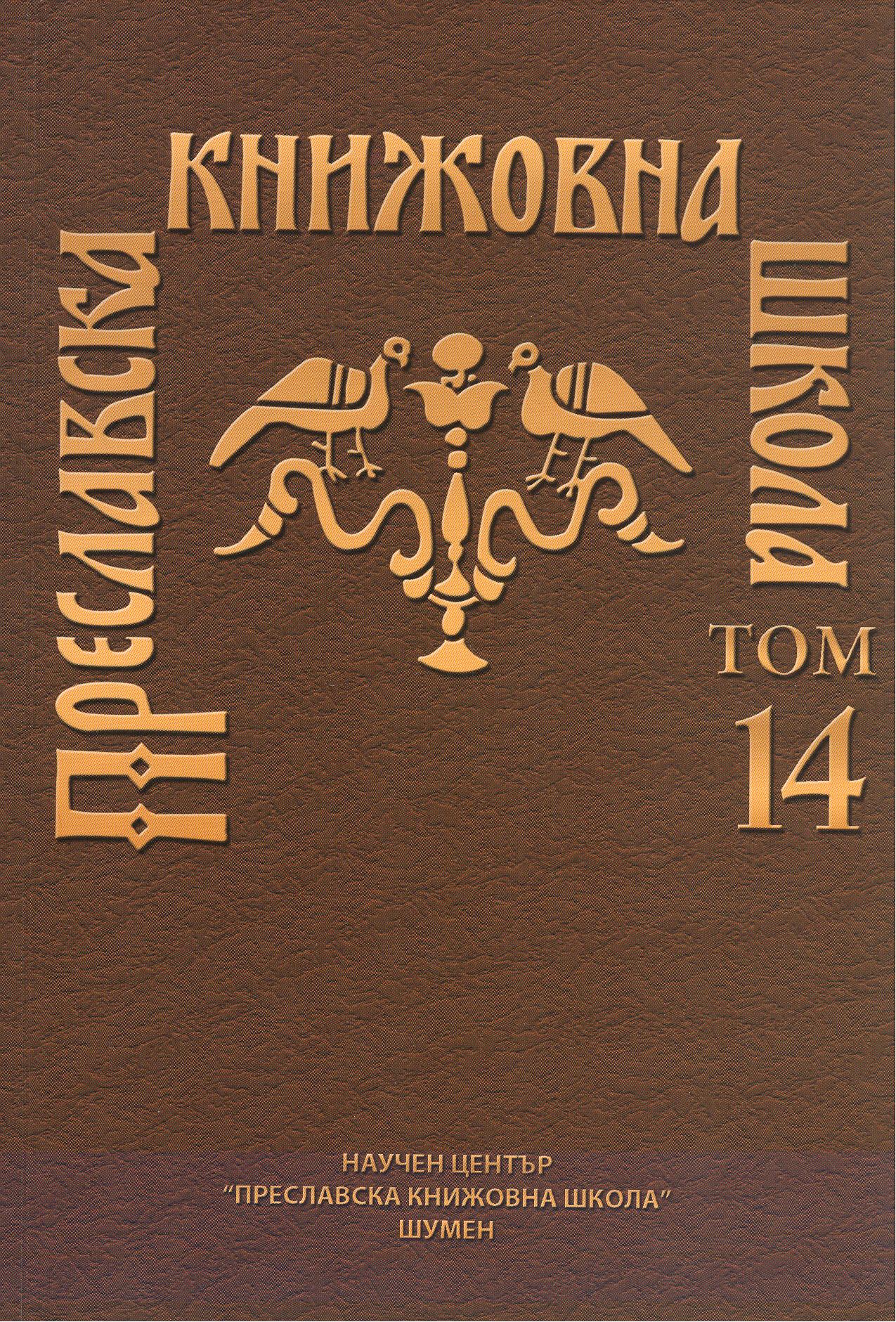
Keywords: Old Bulgarian language; Old Bulgarian translation; St. Cyril of Jerusalem’s Catechism; composite nouns
The article analyzes 125 composite nouns, extracted from the Old Bulgarian translation of St. Cyril of Jerusalem’s Catechism of - 6 lexemes are for the concrete nouns (бракоодѣниѥ, виноградъ, врътоградъ, гланотѧжь, овощехранильница, трикровьникъ), 46 are designations of persons and 73 abstract concepts. There are primary ontological (бытиѥ, законъ, творениѥ, cf. пакыбытиѥ, законопрѣстѹпаниѥ, самотворениѥ), epistemic (мѫдрость, родъ, cf. цѣломѹдриѥ, прьвородиѥ) and ethical (благо, доброта, милость, мѣра, разѹмъ, cf. composite nouns with the first component благо- and добро-, милосрьдиѥ, лицемѣрьѥ, благоразѹмиѥ) terms detect in the structure of abstract noun composites. Complex nouns that are not fixed in the classic Old manuscripts are 78, for example благодэтельство, благодѣтиѥ, дльготрьпиѥ, добровольство, добровоньство, звѣздоберьць, звѣздословьць, земледѣля, зълобѳстриѥ. The compositum сѳноотьчьѥ is used in its negative theological meaning, rejecting the idea of Savelii’s heresy for monohypostasis of God’s personality. Particular composite bases of complex nouns are registered in Old Bulgarian canon as synonymous composite bases благочьст- and доброчьст- are fixed only in Codex Suprasliensis and Hylendar parchment sheets (a fragment of the Old Bulgarian translation of the catechism), and the synonymous derivatives добровоньство and добровониѥ, многобожиѥ and мъногобожьство are used in the Syn. 478 and Codex Suprasliensis. The main part of the composite nouns from Syn. 478 translate Greek composites, following the so-called word-by-word (and morpheme-by-morpheme within the lexeme) principle of translation. Examples are registered, in which old Bulgarian complex nouns translate Greek combination of words, for example бракоодѣниѥ wedding garment for Greek γάμου ἔνδυμα, тьштельсть blasphemy, vilification for Greek κενης ἀπάτης. On the other hand, compared with the Old Bulgarian canon a Greek complex lexemes is not translate with a combination of words and a complex noun, eg.: Greek ὀπωροφυλάκιον in the Sinai Psalter овощьноѥ хранилище, while Syn. 478 овощехранильница; Greek τεκνογονία in Codex Suprasliensis прижитиѥ чѧдъ while in Syn. 478 дѣтиродиѥ. In regard to the structure of compound words in the Syn. 478 both types are fixed: with a connective vowel -o/e- (eg. подобоврѣдиѥ, равьнодьниѥ, тъштельсть) and without a connecting vowel (братѹчадъ, дѣтиродиѥ, зълъштѫдь, лъжиисъвѣдѣтель, пакѳбѳтиѥ, полѹдьнь, тридьновие, трикровьникъ). In connection with the varying degree of repetition of the first component the so-called Composite group is registered, as the ones with a basis благо- are the most frequent (18 lexemes). Among the analyzed first components of complex nouns in Syn. 478 the bases басно-, брако-, главо-, дѣти-, зълъ-, зѣло-, кръваво-, овоште-, пророко-, пѹстыне-, равьно-, свѣто-, свѧто-, сладо-, срамо-, срѣдо-, тризно- and чьсто- are not fixed at all in composite lexemes in the classic Old Bulgarian manuscripts. The complex words with first component басно-, добро-, кръваво-, подобо- and само- are characteristic of practice Preslav writers’ because composites with those first components are found in Codex Suprasliensis, Izbornik of 1073, John Exarch’s Theology, Antiochus’ Pandects and Nikons’ Pandects. Syntactic-semantic relations between the foundations of the composite nouns in Syn. 478 are most often based on subordinating conjunction – attribute, object or adverbial relation between the components. In this respect the mutational and transpositional word-formation categories and types composite are differentiated in the studied manuscript. The observations allow us to conclude that the lexical layer of composite nouns in the Old Bulgarian translation of the Catechism reflects the norm characteristic of the Preslav scholars – in the use of lexemes (and their components) as dictionary units, as well as in the construction of composite bases according to established word-formation patterns in the Old Bulgarian language.
More...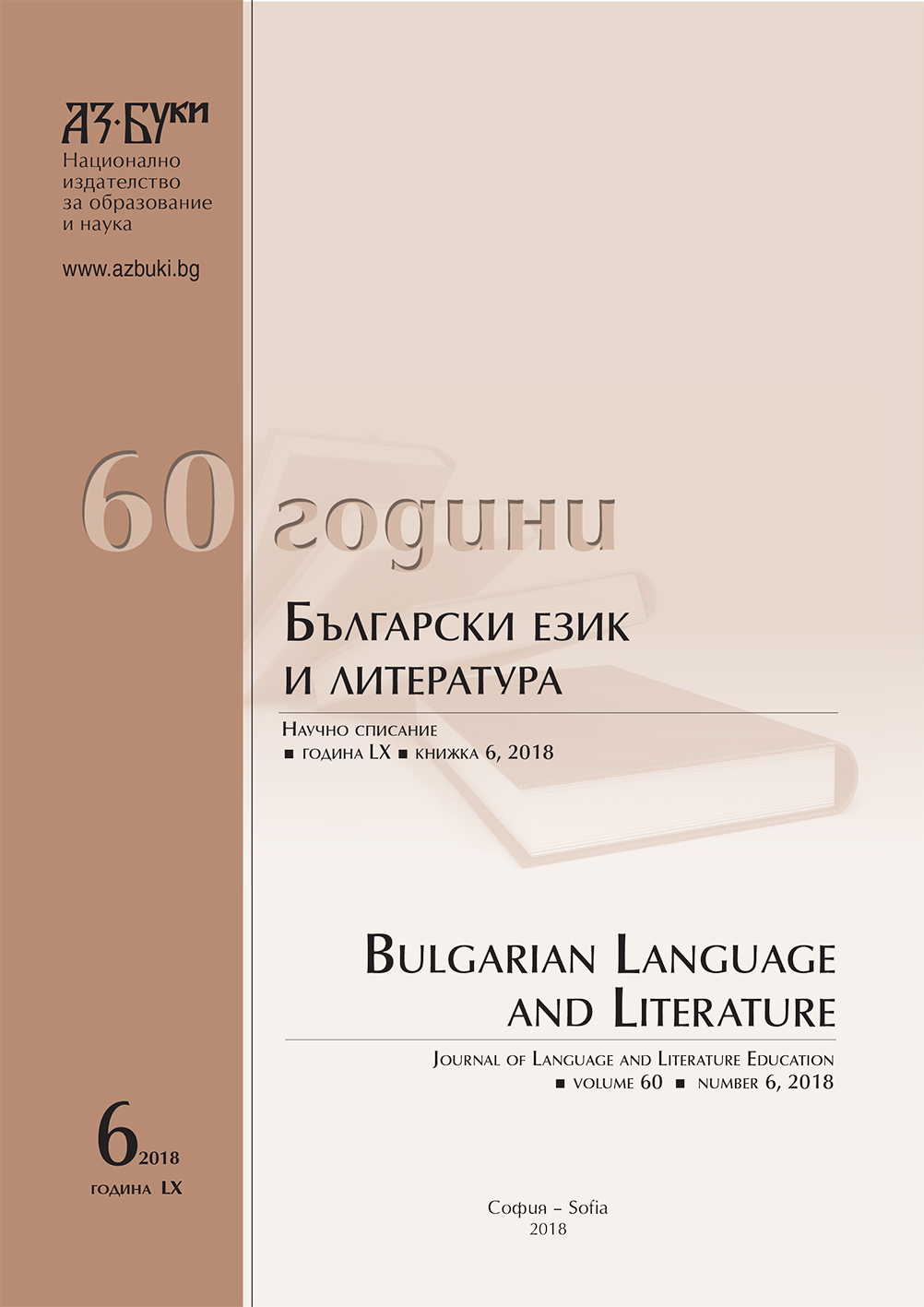
Keywords: the model of Bulgarian literary language during the Renaissance; the opposition own – foreign; Bulgarian purism
The article focuses on the relationship between the model in which the Bulgarian literary language is formed during the Revival period and the own - foreign opposition. It analyzes those cultural and historical prerequisites, which determine the specifics of the own – foreign opposition in the field of the literary language and explain the tolerance towards the foreign influences related to the orientation of our society towards European cultural models. The character of Bulgarian Purification is analyzed.
More...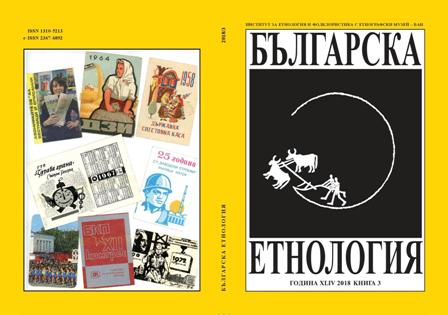
Keywords: Christmas; New Year; public; private; tradition; concert; Christmas tree; bazar
The article discusses two public events related to Christmas, and one related to New Year’s Eve, based on participant observation, media review and interviews with all members of two families as case studies. It confirms the initial hypothesis that in recent years the private space of the home has increasingly opened to the public space.For the purposes of comparison, the traditional way of celebrating the two festivals is traced back and is compared to the public events related to these holidays today and the interview data. The article shows that the dynamics of private and public has changed seriously for the last 20 years, and public events related to Christmas and New Year enjoy a large number of visitors and are extremely successful, which confirms the starting hypothesis about the opening of private space increasingly towards the public one.
More...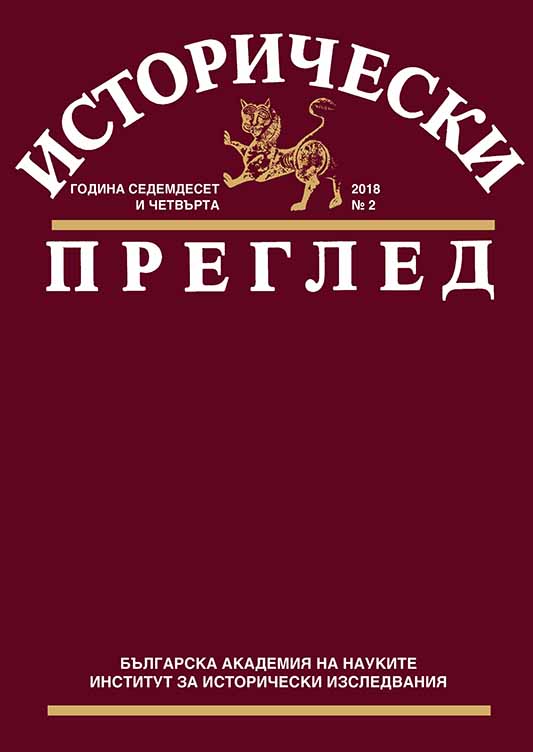
Keywords: Ivan Naydenov; Petko R. Slaveykov; enlighteners; newspaper debates;
The paper deals with the complex relationship between Ivan Naydenov (1834– 1910) and Petko R. Slaveykov (1827–1895) – two active participants in the struggle for independent Bulgarian Church, establishing the Bulgarian Exarchate, and in the social life in 1870’s. The debates in the newspapers and the collaboration between these two prominent newspaper editors are in the focus of the study. The unpublished letters of Naydenov to Svetoslav Milarov (1849–1892) are among the important sources used in the paper. The research aims at offering a more precise picture of that time and of the attitude towards the so-called “enlighteners”.
More...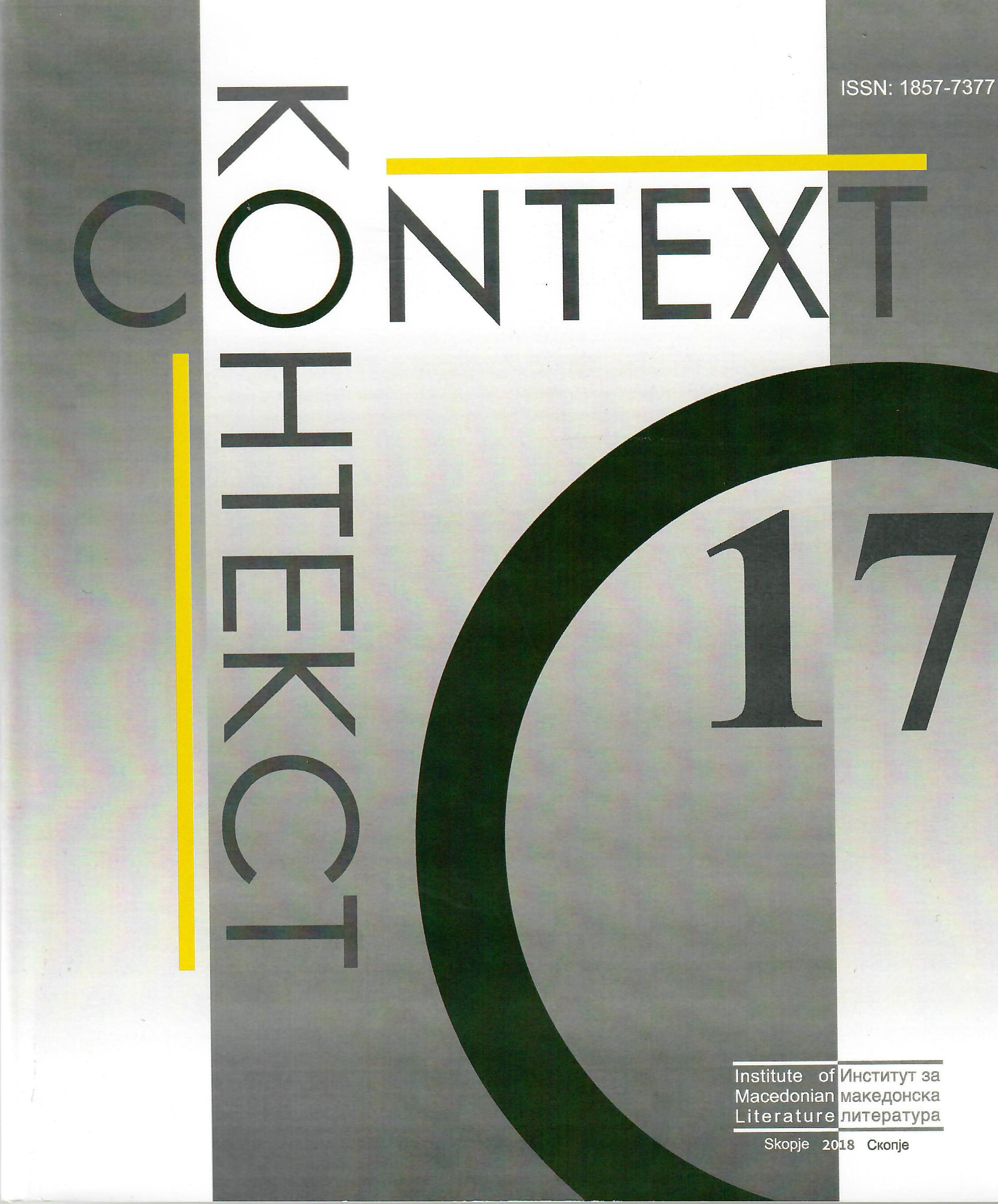
Keywords: comparative literature researches; Milan Gjurcinov; cultural researches
The text is dedicated to the Macedonian distinguished literary scholar, critic and member of Macedonian Acade-my of Sciences and Arts, Milan Gjurcinov, who was founder of the Department of General and Comparative Lit-erature on Faculty of Philology “Blaze Koneski” at Ss. Cyril and Methodius University in Skopje. It summarizes the main methodolocical tendencies among scholars in Macedonia who are professionally devoted to teaching and researching in the field of comparative literature and culture. It also marks the history of the discipline in Macedo-nia and its most prominent representatives.
More...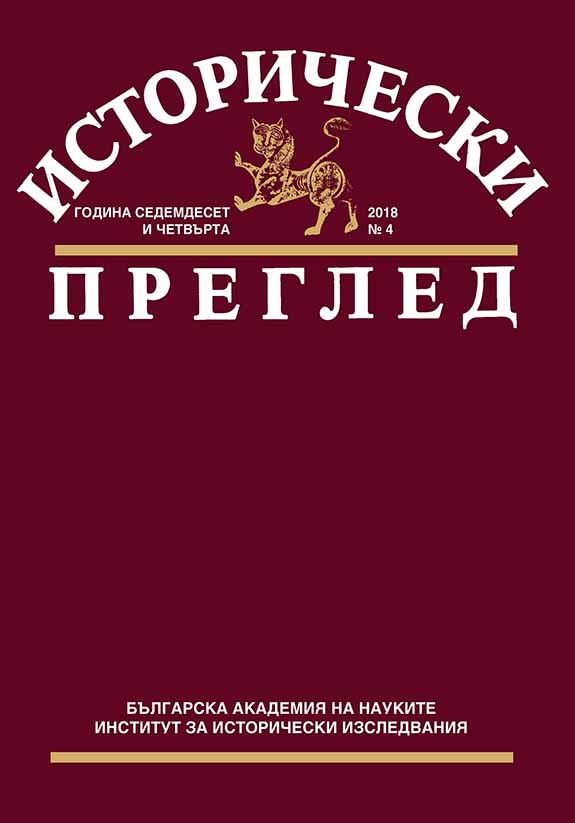
Keywords: Petar Beron; Bulgarian 19th Century; History of Childhood; Child; Enlightenment; Greek Enlightenment; John Locke; Aristotle;
The study focuses on Petar Beron’s views on childhood revealed in his writings and biography. One of his strongest messages is for a new understanding of childhood and children as a stage in human development, requiring from adults specific treatment. He was especially strong on defending the right of girls to school education. Along with Locke, he believed that a kid’s mind is a tabula rasa and corporal punishment should be abolished. More traditional is he regarding the power distribution at home and school: free choice is the domain of adults; children don’t have enough knowledge and experience to be vested with it.
More...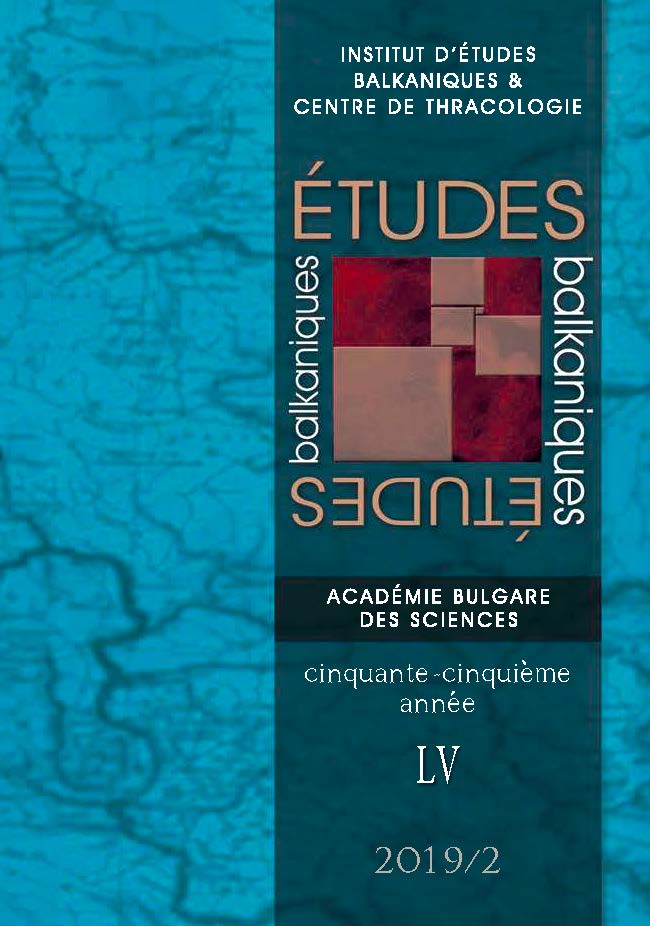
Keywords: Сaricature; Image of the Other; WW I; Aftermath of WW I; Bulgaria; the Balkans;
This text seeks to present the way in which Bulgarian caricaturists depicted the aftermath of World War I in their work. The attention is focused primarily on the image of the neighbouring Other. Does war matter and, more precisely, what is the relationship between war (and post-war time) and the attitude to the neighbouring nations of Bulgaria, and how this relationship influences the dynamics of the caricature images in the Bulgarian humoristic press? These are the questions to which the author offers an answer. As a basis of discussion a corpus of about 80 caricatures published in the newspaper Българан (Bălgaran) is used.
More...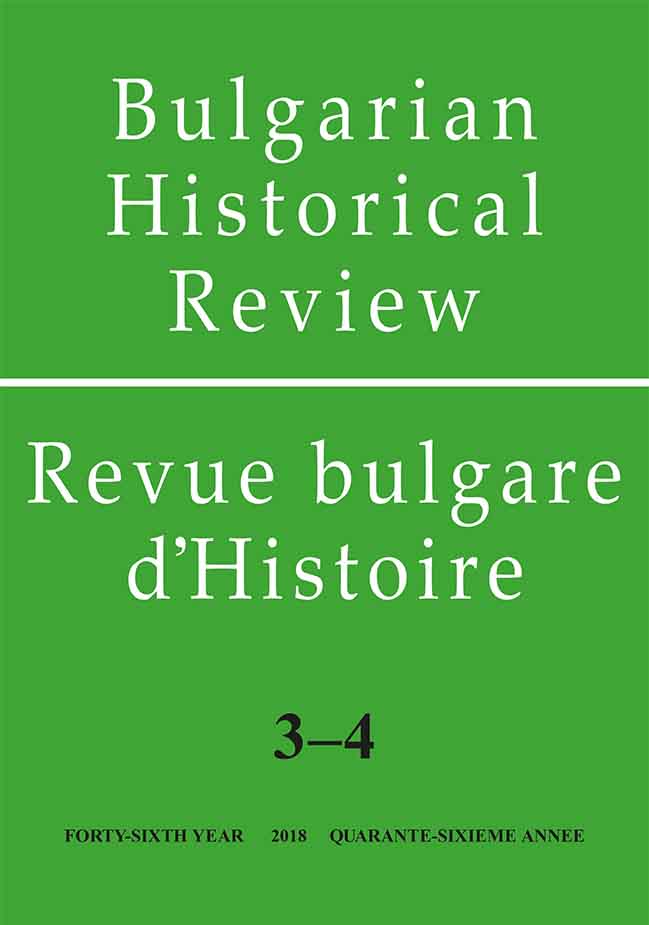
Keywords: historiography; literary history; interdisciplinarity; problematisation;
The paper deals with some methodological problems in literary history and searches for their analogues and connections in historiography. What defines a text as literature? What does literary history really examine? The centuries-old unity of Bulgarian literature – does it really exist and what are its boundaries in time and space? The paper questions some established notions about these topics and suggests that such questions and doubts are related to the historiography.
More...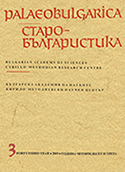
Keywords: Bulgarian Renaissance; church “St. Nicholas” in the village of Banya, Panagyurishte district; icons and frescoes depicting Sts. Cyril and Methodius; Bulgarski bukvar; painter Ivan Stoyanov Zografski
The mural depicting Sts. Cyril and Methodius at the church „St. Nicholas“ in the village of Banya is a typical example of the role of the Bulgarian icon-painters and the Cyrillo-Methodian theme in the reawakening of the Bulgarian people during the Bulgarian Renaissance. The current church building was built in the middle of the 19th century, the icons found in the church and the only mural scene there were created somewhere between the middle and the second half of the 19th century. The comparative analysis of the mural and the images in closest proximity to it shows that the icon-painter built the iconographic scheme on the basis of the famous image from the “Bulgarski bukvar” [Bulgarian primer], which he obviously knew in great detail and followed very closely. The icons and frescoes depicting Sts. Cyril and Methodius are divided into two main groups according to their compositional features and peculiarities. In the first group Cyril and Methodius are depicted separately whereas in the second one they are represented together. The frescoes in the village of Banya are connected to one of the characteristic images in the Cyrillo-Methodian pictorial tradition – namely, the one in which Cyril and Methodius are depicted in monastic attire. This pictorial scheme emerged during the Bulgarian Renaissance, but remained less widespread. In view of the fact that the frescoes in question were definitely created in 1861, and that the name compositional change started to occur in the middle of the nineteenth century, it can be assumed that the fresco is probably among the first images in which this invention emerged. On the basis of a thorough analysis of the details and inscriptions providing information about the exact date of the frescoes’ creation, the occasion for their creation and the donors that contributed to their realization, as well as the study of the icon-painters who worked in the church, it can be concluded that the fresco was probably one of the early works of the painter Ivan Stoyanov Zografski (Papazov), who at that time lived and worked in the village of Banya.
More...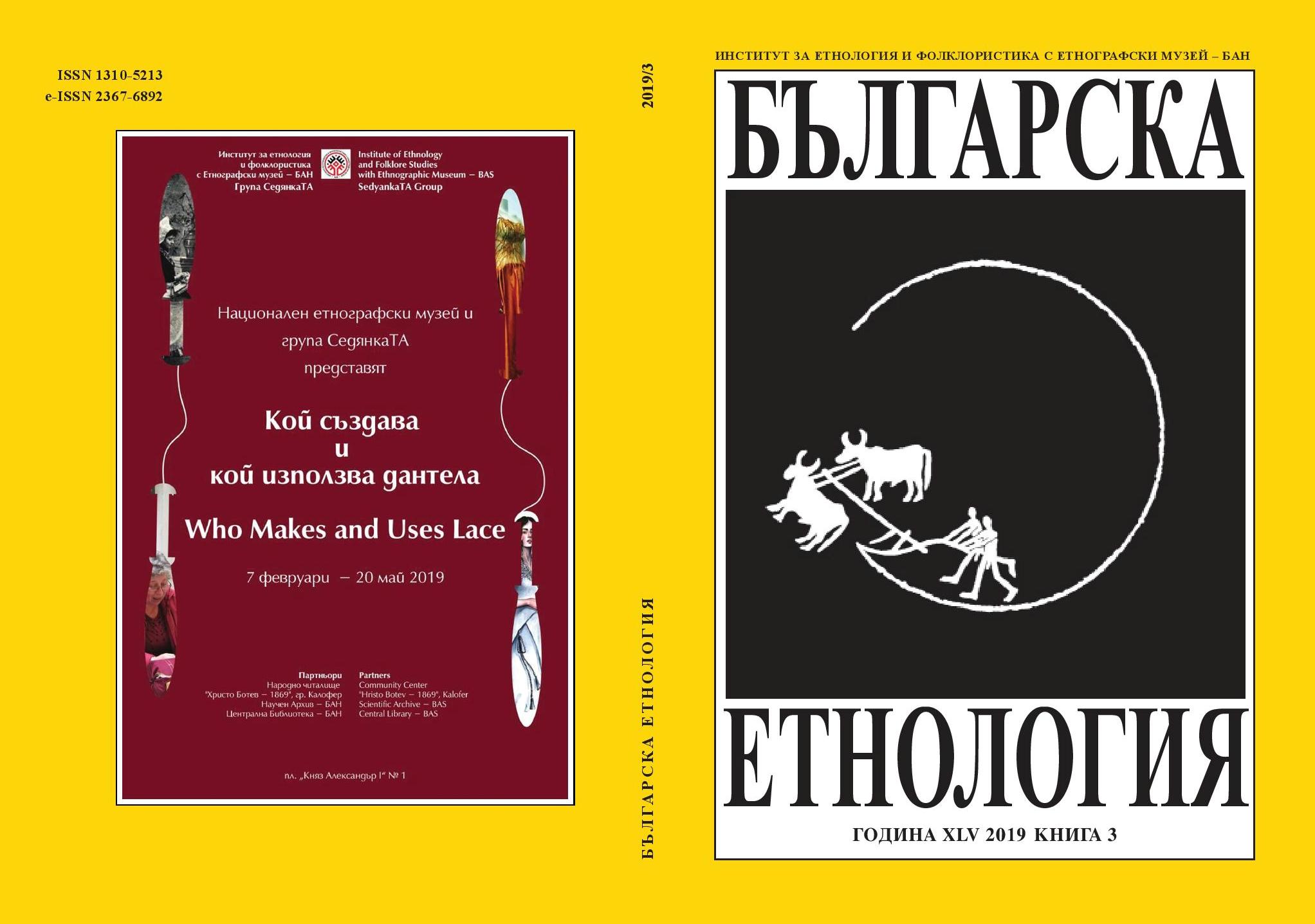
Keywords: Northeastern Bulgaria; Varna Region; ethnic groups; ethnicity (narodnost); national state; provincial administration; clothing; population; censuses
The paper offers an analysis of the ethno-demographic data found in a corpus of handwritten documents related to the Province of Varna in North-eastern Bulgaria and compiled in 1888 as a result of a state-wide initiative for collecting information on the traditional clothes of the population. The related data is explored in the context of other contemporary sources in order to trace tendencies and specificities in the approach of the local administration – which was responsible for carrying out of the survey – towards the ethnicity as a concept and a means of population mapping,as well as towards the represented ethnic groups in particular. The paper highlights the meanings of the term ‘ethnicity’ (narodnost) as applied in the sources under consideration, and discusses the (in)visibility of certain communities, including the ethnographic groups that form them. Moreover, an attempt is made to set the discussion against the background of imperial legacy and the social structures and concepts that functioned in the nineteenth-century Ottoman state as opposed to those developing in the newly founded Bulgarian national state.
More...